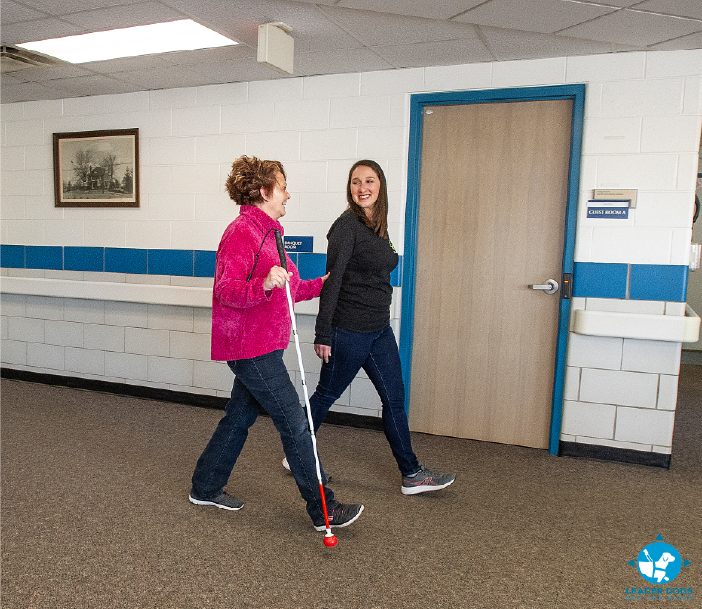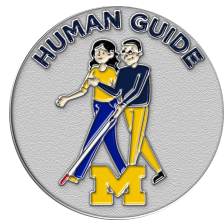The Center for Disability Health and Wellness, together with the Michigan Medicine’s Office of Patient Experience and multiple community organizations, has developed a Human Guide program. Also referred to as sighted guides, these specially trained volunteers can help blind patients and visitors navigate Michigan Medicine facilities.

For Blind, Low Vision, or Vision Impaired Patients:
- If you are a patient seeking Human Guide services, also called sighted guide, please complete the Disability and Accommodations Tab questionnaire in your MyUofMHealth patient portal and contact your clinic’s front desk.
- To learn more about Orientation and Mobility training, please contact the Michigan Bureau of Services for Blind Persons or Leader Dogs for the Blind.
Brief Video Training:
Anyone can take our training to learn about providing human guide for people who are blind. You can access the training module, which will take you to a brief pre-training survey, let you watch the training video, and then take a post-test training survey and evaluation.
Review the human guide video training here.

Get Recognized for Your Commitment:
Michigan Medicine providers, staff, and volunteers can be recognized for their commitment to improving accessibility for patients and visitors who are blind. After accessing the training module, you will take a brief pre-training survey, watch the training video, and then take a post-training survey and evaluation. The first 400 Michigan Medicine affiliates to complete the training will receive a Human Guide at Michigan Medicine lapel pin.
Not at Michigan Medicine? Don’t worry, we will still recognize your completion by emailing you a certificate of attendance.
Human Guide at Michigan Medicine Program Partners
The following individuals and organizations provided content and support for the Human Guide at Michigan Medicine program.
- Quinlan Davis, Michigan Medicine Office of Patient Experience
- Christa Moran, Michigan Medicine Interpreter Services
- Will Purves and Mark Hymes, Disability Network Washtenaw Monroe Livingston
- Lori Board, TVI, COMS
- Leader Dogs for the Blind
Note on Language: We use the term blind in an all-inclusive manner to include the diverse group of people who may identify as blind, DeafBlind, low vision, or vision impaired.
